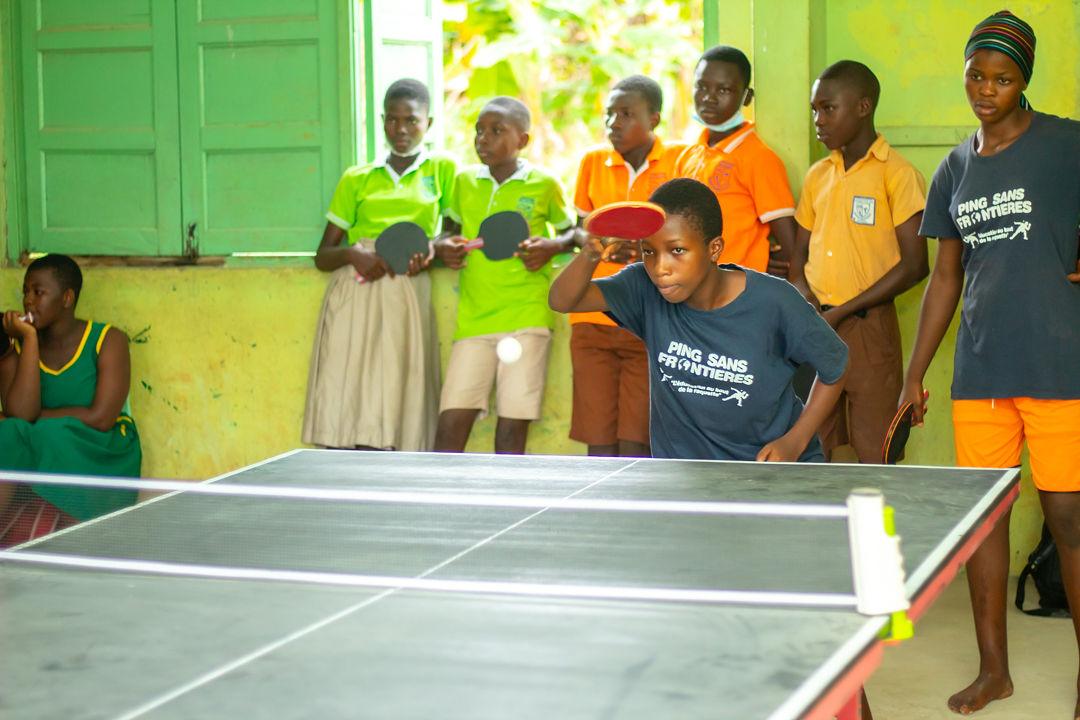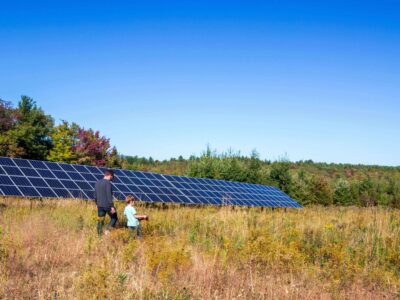Sarah Hanffou, an attorney from Nice, France, has twice represented Cameroon at the Olympics. What’s her sport? Table tennis! It’s a game we often associate with casual nights in the backyard. However, at the highest level, it is no joke. Representing Cameroon inspired Hanffou to bring the spirit of sport and environmentalism to Africa.
Hanffou is the founder of the nonprofit Ping Sans Frontieres (PSF). Her company teaches sustainability and social responsibility in sub-Saharan Africa through the power of table tennis. She came up with the idea in 2005 after attending an event in Niamey, Niger.
She noticed the poor conditions for table tennis in the city. Kids played with broken nets on a worn table and a single ball. So, in 2006, PSF was started. It hosts camps and trains potential prospects in Ghana, Burundi, and other African countries.
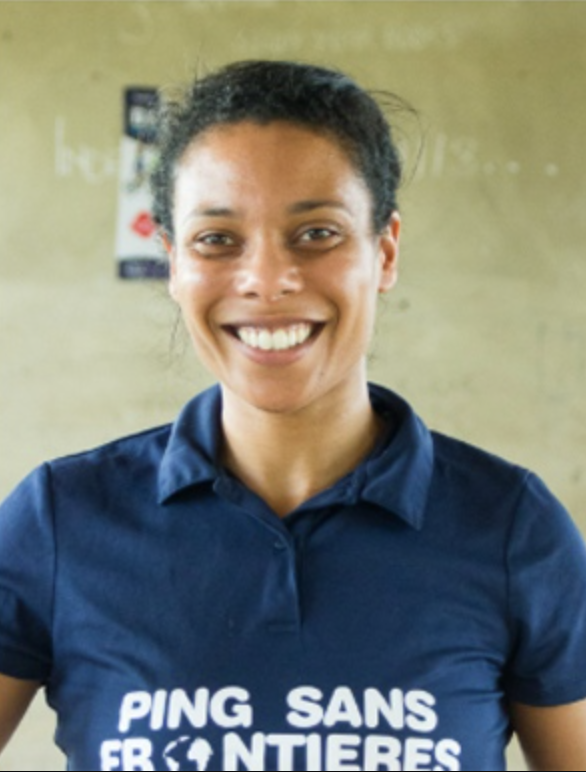
Photo Courtesy Ping Sans Frontieres
“Two of the main goals of Ping Sans Frontières (PSF) are to redistribute table tennis equipment and to encourage table building in sub-Saharan Africa in an ecologically friendly and equitable way,” she explained to “GreenSportsBlog.”
PSF founded the table tennis manufacturer TAKO. This branch of the nonprofit creates table tennis tables and other equipment in Africa by local workers and with African resources. African carpenters carve these tables, supporting a village’s local economy. All proceeds from TAKO sales go to PSF’s social responsibility branch.
Meanwhile, PSF donates the equipment to schools. It uplifts children experiencing extreme poverty in school and provides services like uniforms, meals, and medical care, all while learning table tennis.
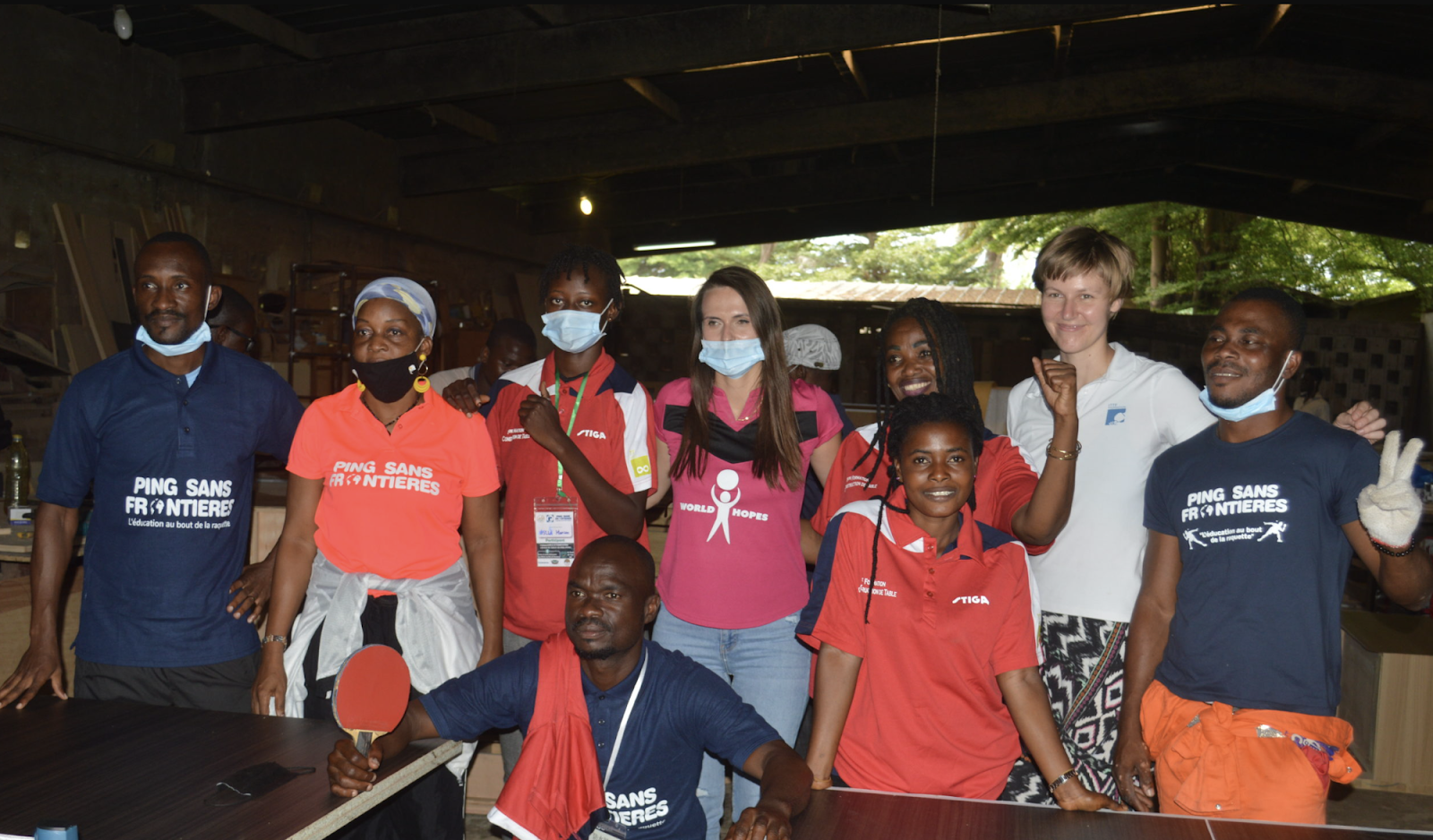
Photo Courtesy Ping Sans Frontieres
TAKO is the first African table tennis brand. It fosters active participation in sports while reducing the need to import tables from outside the continent.
That leads to fewer emissions from shipping and transportation as locally sourced wood cuts down on the use of synthetics and polluting chemicals.
“The carpenters are delighted to participate in this project. It is a job opportunity for them, and I hope that more opportunities will come our way as awareness of our brand grows,” Hanffou told “GreenSportsBlog.” “Players, especially our ambassadors, are on board. They want us to lead on environment. And it goes beyond the TAKO tables.”
She founded TAKO after attending the Impact 2024 Athlete Entrepreneurs seminar in 2022. “The program aims to drive positive change in France and Africa by helping athletes move onto their next challenge beyond their competitive sports careers,” Hanffou explained. “Specifically, they assist the athletes in putting their skills, values, and commitment to good use by developing long-term projects with high social and/or environmental impact as part of the legacy of the Paris 2024 Olympic Games.”
The first batch of tables was manufactured in Takoradi, Ghana, from which the company gets its name. The company is looking to extend its work to other nations of Africa, like Senegal and Ivory Coast. Hanffou hopes to feature TAKO’s products at the 2026 Youth Olympic Games in Dakar, Senegal.
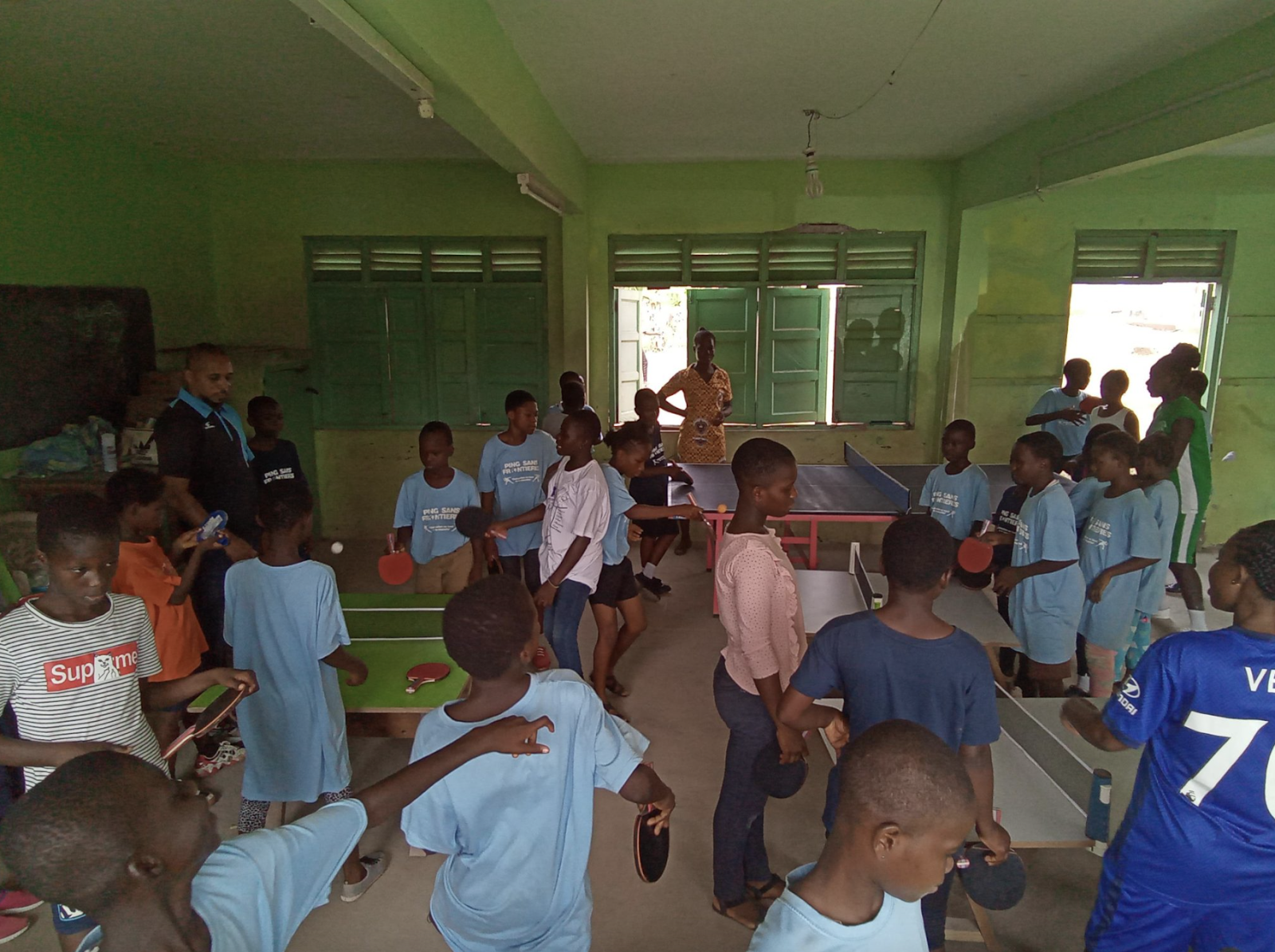
Photo Courtesy Ping Sans Frontieres
PSF encourages table tennis participation across all age groups and demographics. However, young girls, women, and people with disabilities are of particular interest. Bringing them an outlet to make friends, experience educational opportunities, and learn new skills helps develop relationships and boosts the social enterprise of these nations.
Hanffou’s sponsor, Cornilleau, and PSF partnered on another eco-friendly table tennis-related campaign. Rubbers for All collects the rubber from paddles to be reused for new ones.
Unwanted equipment is gathered in France and distributed across the globe. The effort saves money on new paddles and is more sustainable than buying new ones.
PSF has other notable sustainable table tennis programs underway across Africa. In Burundi, Phase 3 of the project is underway, focusing on inclusion and motor rehabilitation for children with disabilities.
In Ghana, schools use table tennis as a team-building outlet for elementary students. Training to make tables has been organized in the Ivory Coast for those looking for a steady job. These tables will be donated to schools in Abidjan, Ivory Coast.
In South Africa, a paddle donation drive was run as PSF and TAKO continue to expand their reach across the continent.
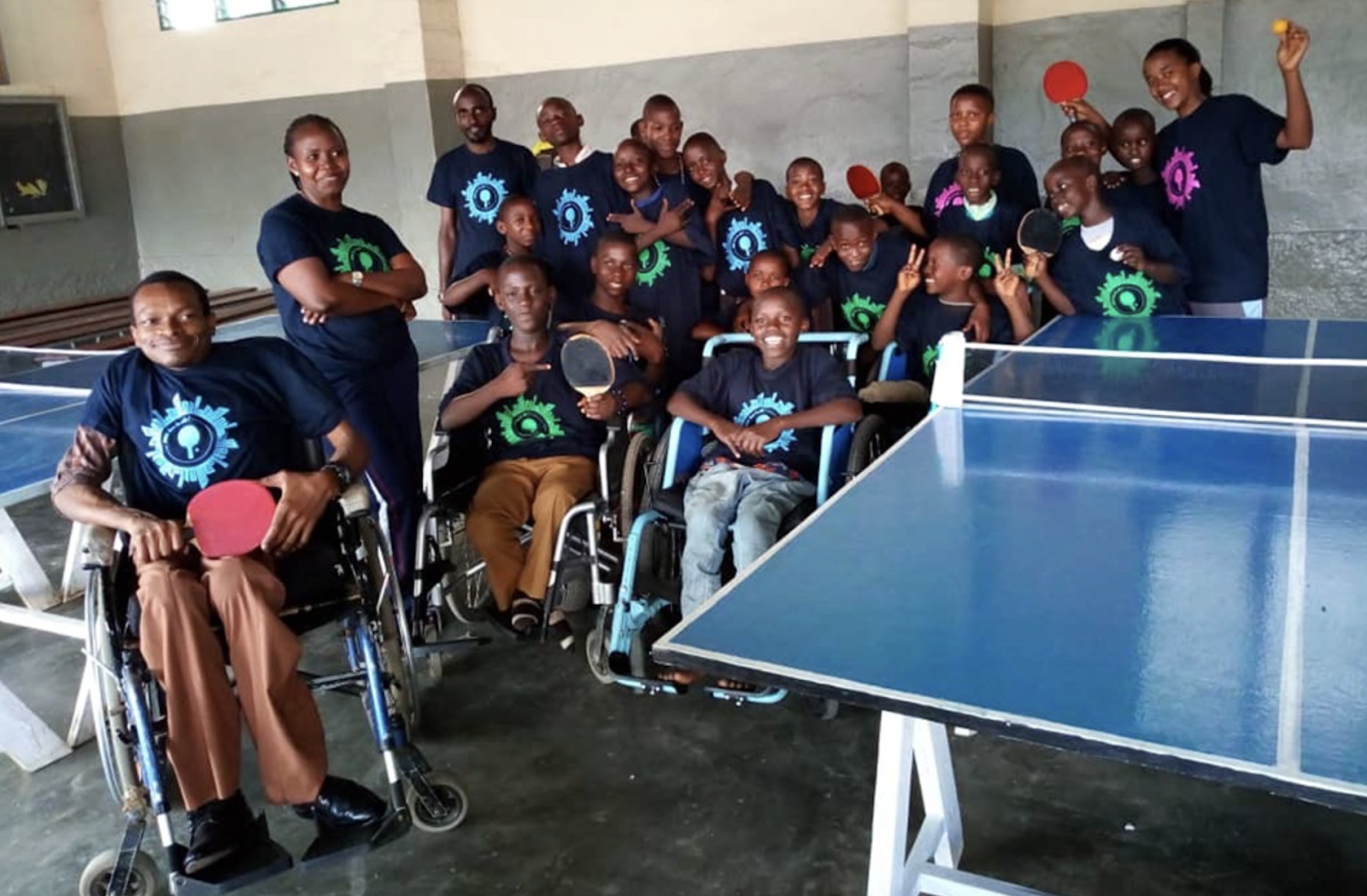
Photo Courtesy Ping Sans Frontieres
“I am really convinced that the values of sport, the soft skills that we learn, can allow children to become responsible and fulfilled adults. It can also open the field of possibilities and allow them to live unforgettable life experiences,” Hanffou told “GreenSportsBlog.”
“With TAKO, we want to make table tennis accessible to everyone,” Hanffou continued. “It is one of the most popular sports in the world, and that popularity is growing in Africa. We build and sell our tables in Africa, and we reinvest the benefits in Africa. It is a virtuous cycle.”

